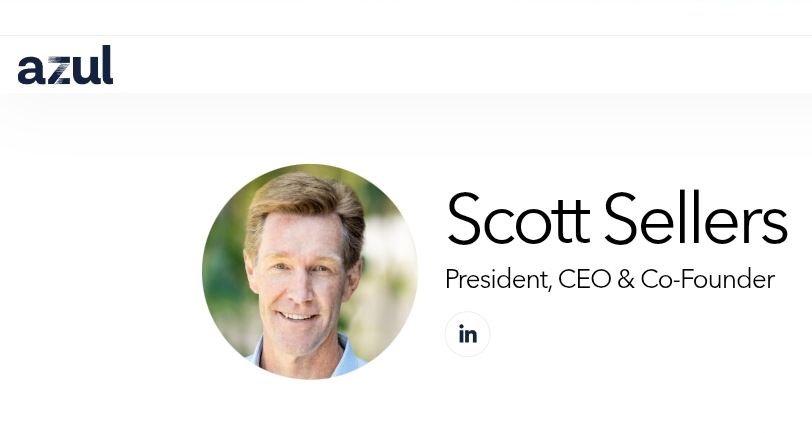Customer experience (CX) and employee experience (EX) in enterprise environments face growing technology challenges as companies scale and innovate. When mission-critical applications lag or fail, the ripple effects degrade customer satisfaction and internal workflows alike. Companies increasingly depend on robust, high-performance technology foundations—especially Java platforms—to ensure seamless digital interactions and secure operations. A recent majority investment from Thoma Bravo into Azul Systems, a firm devoted solely to enterprise Java, highlights the strategic value placed on such technology for CX and EX advancement.
Real-World CX and EX Challenges in Enterprise Tech
Enterprises often struggle with performance bottlenecks, security vulnerabilities, and rising cloud costs that degrade real-time applications supporting CX or EX. Applications must deliver consistent speed, stability, and security to keep customers satisfied and employees productive. Inefficient legacy Java infrastructures, once the backbone of enterprise software, no longer meet these stringent demands. Companies require platforms that deliver rapid innovation cycles, observability, and cost-efficient cloud operations.
This is particularly pressing in sectors like finance or retail, where Azul’s Java solutions power the digital experiences of 36% of Fortune 100 companies and the world’s top banks. A sluggish app or security lapse in these cases can result in lost revenue or damaged brand reputation—highlighting the critical role of enterprise Java platforms.
Azul Systems and Thoma Bravo: A Strategic Partnership to Drive CX/EX Excellence
Azul Systems recently secured a majority investment from Thoma Bravo, a leading software-focused investment firm managing over $180 billion in assets. The deal also involved existing investors Vitruvian Partners and Lead Edge Capital reinvesting capital, underscoring confidence in Azul’s growth and innovation trajectory. This infusion fuels Azul’s efforts to address key enterprise needs: improving Java runtime performance, enhancing security and observability, and reducing cloud infrastructure costs.
Scott Sellers, Azul’s CEO, emphasized that Thoma Bravo’s resources align seamlessly with Azul’s vision and will accelerate global growth and platform innovation. Thoma Bravo’s partners highlighted the rising market demand for scalable, secure, and cost-effective Java solutions as enterprises phase out legacy systems and struggle with rising cloud expenses.
For CX and EX professionals, this signals a solid technology partner underpinning critical digital workflows, delivering reliability demanded by high stakes industries.
Technology Foundations Empowering CX and EX
Java remains the enterprise’s language of choice due to its platform independence, scalability, security, and mature ecosystem. Frameworks like Spring Boot and Jakarta EE facilitate rapid development and deployment, which businesses need to maintain competitive CX.
Research shows high-performance Java platforms improve application responsiveness, reducing load times and friction at every customer touchpoint. For example, in retail, Java powers scalable microservices that handle complex transactions and fluctuating traffic volumes, critical for smooth online shopping experiences. Azul’s platform enhances such applications by optimizing runtime efficiency and lowering cloud hosting costs—directly benefiting customer retention and lifetime value.
On the EX side, Java’s robustness supports secure, scalable internal tools and employee workflows with minimal downtime. This foundation enables real-time data access and collaboration tools essential for frontline staff productivity, improving overall employee engagement and operational agility.
Market Context: Why Investments in Java Matter for CX/EX
As enterprises migrate workloads to the cloud, infrastructure costs surge, making efficiency paramount. Legacy Java offerings often lack cost optimization or modern observability features, limiting proactive issue detection impacting CX/EX.
Thoma Bravo’s investment underscores a broader industry trend: private equity backing high-growth software platforms that deliver tangible business outcomes through technology innovation. Similar investments in CX automation platforms like Verint and Calabrio show how consolidating modern software stacks and AI can reshape CX workflows.
Azul’s focused expertise in Java, in fact, positions it uniquely to capture the market’s expanding demand. Basically, heir products cater to enterprise needs for seamless application performance, security compliance, and real-time insights, all crucial for delivering superior customer and employee experiences.
Expert Commentary and Case Study Insights
Adam Solomon, partner at Thoma Bravo, notes that Azul’s technology foundation and team experience, in fact, catalyze accelerated growth opportunities. Clients such as BMW, Mastercard, and Salesforce trust Azul’s platforms for mission-critical operations, demonstrating proven value in diverse high-stakes environments.
A 2025 case study from Azul, in fact, highlights the retail sector, where their high-performance Java platform reduced application latency by 30%, improved transaction reliability, and cut cloud infrastructure expenses by 20%. As a result, these gains translated directly into smoother checkout flows, which in turn led to higher customer satisfaction scores, while also providing enhanced backend stability for store employees and managers.
Similarly, financial institutions benefited from Azul’s secure Java runtimes to comply with stringent regulations while scaling incremental digital services, translating into better client trust and employee workflow efficiency.

Actionable Recommendations for CX and EX Professionals
- Evaluate your technology foundation’s impact on CX/EX: Assess whether legacy Java infrastructures or cloud costs create friction in customer or employee-facing applications.
- Partner with specialized technology providers: Blue-chip enterprises increasingly rely on experts like Azul for tailored high-performance Java platforms, bringing hardware-level efficiency and runtime innovation.
- Prioritize observability and security tooling: Proactive monitoring and robust security within application runtimes prevent interruptions and data breaches, safeguarding brand trust.
- Scale engineering support and innovation cycles: Rapid deployment frameworks ensure CX/EX tools evolve to meet dynamic customer demands and employee productivity needs.
- Optimize cloud infrastructure costs: Modern Java platforms can lower cloud expenses substantially, freeing budget for customer experience innovation or workforce engagement initiatives.
Conclusion
The strategic investment by Thoma Bravo into Azul Systems underscores the critical role of advanced enterprise Java platforms in shaping next-generation customer and employee experiences. By providing speed, security, and scalability while controlling costs, Azul empowers digital transformation at scale. CX and EX leaders should watch this technology evolution closely and leverage these innovations to deliver exceptional, resilient experiences that differentiate their brands in a competitive marketplace.
This partnership signals a new phase of focused investment and innovation in enterprise Java—one with profound implications for seamless digital interactions across industries. It is a call for CX and EX professionals to ensure the technology foundations they choose are equally innovative, secure, and future-ready.

